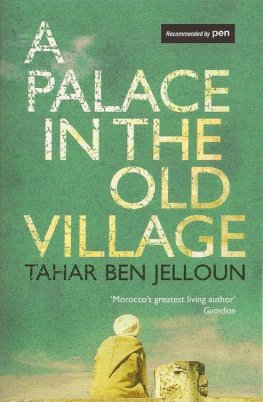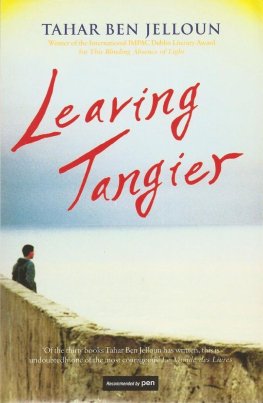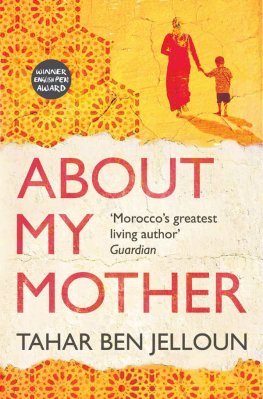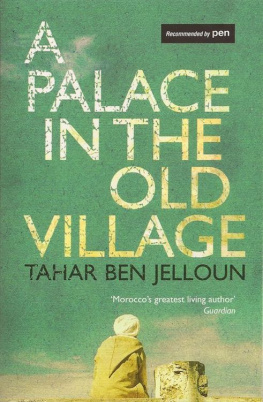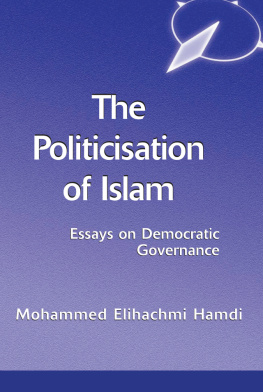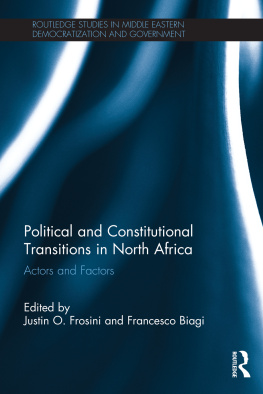Tahar Ben Jelloun
By Fire: Writings on the Arab Spring
Fire destroys that which feeds it.
SIMONE WEIL
Albert Camus asked, What is a rebel? and answering his own question, he said: A man who says no. It is at this point, when fear is gone, that whole nations say no.
PETER BEAUMONT, HOW DICTATORS FALL
Translators Acknowledgments
I would like to thank Jeffrey Green for his edits and suggestions on the books introduction; Marilyn Zucker, Peter Khost, and Astrid Wimmer for reading my translation of Par le feu; Franck Dalmas for his help with aspects of Ltincelles translation. Above all, I wish to express my gratitude to my publisher-father, the late Ruhul Amin Nezami, for inspiring me.
Browsing in a Paris bookshop in the summer of 2011, I picked up two books by Moroccan writer Tahar Ben Jelloun, the novella Par le feu (By Fire) and the nonfiction Ltincelle (The Spark) both works about the Arab Spring. A juggernaut of revolts against authoritarian regimes, the Arab Spring began the previous winter with uprisings throughout several countries in North Africa and the Middle East. At hand, the experts said, may be an era of fundamental political reform throughout the region. Journalists and political analysts were virtually unanimous that the Arab world was convulsively re-creating itself while we watched. Some North African and Middle Eastern countries would be changed in some way by the firestorm. Ben Jelloun published the two books with Gallimard in 2011 at the height of the protests.
The New Yorker published my translation of By Fire in September 2013, which gave many American readers the first opportunity to learn about Mohamed Bouazizi, the young Tunisian man who is often credited with triggering the Arab Spring. By Fire makes it possible for American and European Anglophone readers to gain insights into the personal life of a tormented and economically marginalized man. Certainly, the international media covered the demonstrations from Tunis to Cairo by showing furious demonstrators clashing with the police, but often a reporters voice-over gave viewers a superficial update on the current state of revolts and negotiations before quickly moving on to the next story. The media could not show the experiences of individuals who finally had enough of oppression and deprivation. Though the cameras did zoom onto individual faces and microphones did capture the shouting and tumult, journalists could not reveal the peoples subjective experience of intense despair and frustration. Perhaps even the most meticulous historical writing cannot always capture the experience and meaning of a mortar round that turns bedrooms into glass shards and rubble. Showing and not telling is easier for the novelist: in the literary imagination, one can more easily enter a life, a mind, a space, and a specific moment and show what one finds there. Writers like Ben Jelloun use the full range of their literary and imaginative powers to represent the human condition that can evade chronological or historical narratives. In By Fire, he critically reveals the consequences of tyranny and repression through the eyes and emotions of one street vendor in the vast Arab world. The Spark, on the other hand, reports and objectively analyzes this moment in history and focuses on various historical figures, including Mohamed Bouazizi. The Spark also represents an irreverent and fearless snapshot of dictatorship and the politics of the Arab Spring as it stood in 2011.
This book contains my translations of By Fire and sections related to the Tunisian conflict from The Spark. These selections are vital for a serious reading of the novella and will enrich the experiences of first-time and veteran readers of Ben Jelloun. The Spark also provides a rich background against which to read By Fire. Also included is my translation of a brief reflection on the new Tunisian Constitution by Ben Jelloun. My task in this introduction is to offer some comments that may open the story for readers and help them enter it with confidence.
The Arab Spring: Essential Backstory
By Fire has its roots in mid-1950s Tunisian politics. Considering how the autonomous Tunisia was born reveals a lot about how Mohamed Bouazizi reached his soul-wrenching impasse in a small Tunisian town, Sidi Bouzid, more than a half century later. Zine al-Abidine Ben Ali came to power in Tunisia because electoral institutions never found footing as the weary French colonial rulers moved toward handing power over to the Tunisians. In 1957, for the first time the people elected a constituent assembly, which declared Habib Bourguiba as president. Bourguiba then ruled and was even granted the title of president-for-life by a constitutional amendment in 1975until Ben Ali ousted him in 1987. Bourguiba had long been at the forefront of the Tunisian independence movement and spent years in French prisons for his beliefs. Leader of the Neo-Destour Party, Bourguiba found widespread support among the people, but he was no democrat, and many called him a dictator once he came to power. However, he was committed to a secular state and went so far as to criticize what he regarded as the negative effects of Ramadan on the Tunisian economy. To the dismay of other Arab leaders, he maintained good relations with the West and did not mince words about his East-West orientation: Basically and profoundly, we are with the West, he said in 1957 as Tunisia was coming together as an independent state. Perhaps this was true in terms of trade and secularism, but it was not in terms of political power, and it was precisely this kind of thinking about how and where power should reside that set the stage for Tunisias future police-state (Tunisia: Neighbors Duty 1957). Bourguiba esteemed Western values while, at the same time, thinking that such values, especially democracy, were not appropriate for Tunisia. The state and its existence are essential before everything else, he said in 1958. All this preoccupation with liberty is not serious (Tunisia: No Time for Democracy 1958).
This rhetoric betrayed the strength of authoritarianism that would come to dominate Tunisian life and eventually catch people like Bouazizi in its maw. Bourguiba loathed colonialism, but he was convinced that democracy should not be its successor. In the September 29, 1958, issue of Time magazine, Bourguiba spelled out his thinking about the relationship between political liberty and nation-building: At the moment of a revolution there is no question of setting up a democracy like that in America. If they accuse me of dictatorship, I accept. I am creating a nation. Liberty must be suppressed until the end of the war in Algeria until the nation becomes homogeneous (Tunisia: No Time for Democracy 1958).
The combination of dictatorships and the absence of the rule of law ended badly. When the French left, there was a vacuum that the Neo-Destour Party and Bourguibas authoritarianism filled. Thirty years later, when Bourguiba grew old and feeble, there was, again, a vacuum, and Ben Ali, Bourguibas prime minister, was more than ready to fill it. In 1987, claiming Bourguiba was too ill and elderly to run the country, Ben Ali removed the president from power and named himself his successor.
In her comparative work on postcolonial North African political systems, Human Rights and Reform: Changing the Face of North African Politics, Susan Waltz describes the disappointment of those who hoped the region would include reforms that vested political power in the people. Instead, the postcolonial state maintained control by defaulting to repression and civil-rights abuses (Waltz 1995). Glacier-size forces drive the fortunes of the anonymous masses, and it is Bourguibas legacy that made possible his succession by a man preoccupied with power, control, and personal wealth, and which, many years later, cost Mohamed Bouazizi his ability to support his family without selling out.


